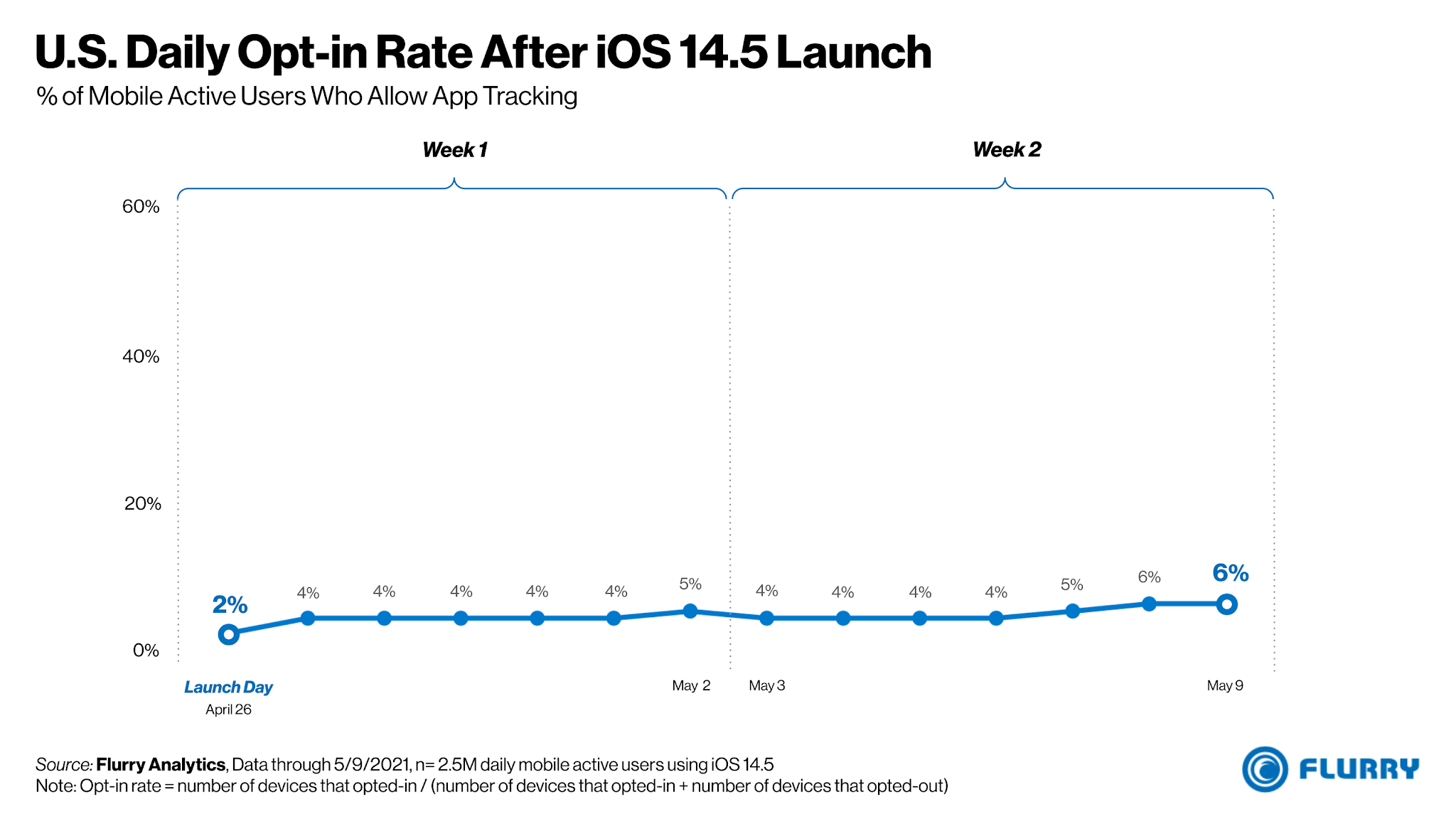Apple Company launched the latest update of iOS 14.5 in which it made certain changes; however, the major change was that the users were given the authority to give permission to the advertisers to track their data for personalized ads. Apple was hugely criticized by many advertisers’ companies and especially Facebook that it is not supporting small businesses that mostly run-on personalized ads. Facebook had a major clash with Apple due to the privacy changes in the latest updates because most of the companies including Facebook knew that the users would never give them permission to track their data and ultimately, these companies will have fewer data to collect.
Apple’s IDFA officially rolled out the latest update of iOS 14.5 in the last days of April 2021. Flurry has published the data which shows that the daily rates to enable the app tracking are just 15% from all over the world and this percentage even goes down when it comes to the users of the US, it becomes just 6% because most of the people in the US are more concerned about their data, and they fear losing their personal data. According to a survey report, more than half percent of Americans think that data getting hacked is more important than being killed. Therefore, they do not trust the advertisers’ companies to track their data.
When this latest update was launched in the US, the opt-in ratio was just 2% and at the end of the second week it goes up to 6% in that country. It will be interesting to see whether this percentage will go up in the next few weeks, or months. It is simple to understand that when the advertisers’ companies are successful in building the trust of the users that their data is in safe hands, more users will opt-in to track their data. Facebook has also another plan for the change by updating its SDK, however, some sources also say that the IDFA will also adversely affect the consumers as well like the In-Play advertising uses this background to monetize 100% of the users with non-invasive advertising that does not restrict with the gameplay experience. It is a far cry from disruptive substitutional and, for issuers that currently depend on monetizing a tiny segment for their audience with in-app purchases, an opportunity to make their post IDFA monetization more viable, the CEO of Amix said.
Read next: Over 40 dozen experts are involved in reviewing process for the Apple App Store and less then 1 percent of the rejected apps go for an appeal
Apple’s IDFA officially rolled out the latest update of iOS 14.5 in the last days of April 2021. Flurry has published the data which shows that the daily rates to enable the app tracking are just 15% from all over the world and this percentage even goes down when it comes to the users of the US, it becomes just 6% because most of the people in the US are more concerned about their data, and they fear losing their personal data. According to a survey report, more than half percent of Americans think that data getting hacked is more important than being killed. Therefore, they do not trust the advertisers’ companies to track their data.
When this latest update was launched in the US, the opt-in ratio was just 2% and at the end of the second week it goes up to 6% in that country. It will be interesting to see whether this percentage will go up in the next few weeks, or months. It is simple to understand that when the advertisers’ companies are successful in building the trust of the users that their data is in safe hands, more users will opt-in to track their data. Facebook has also another plan for the change by updating its SDK, however, some sources also say that the IDFA will also adversely affect the consumers as well like the In-Play advertising uses this background to monetize 100% of the users with non-invasive advertising that does not restrict with the gameplay experience. It is a far cry from disruptive substitutional and, for issuers that currently depend on monetizing a tiny segment for their audience with in-app purchases, an opportunity to make their post IDFA monetization more viable, the CEO of Amix said.
Read next: Over 40 dozen experts are involved in reviewing process for the Apple App Store and less then 1 percent of the rejected apps go for an appeal



